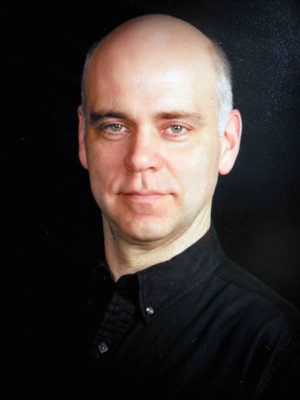 This event is part of our Critical Minds series held February 23, 6:30-8:00 pm central standard time on Zoom (https://zoom.us/j/97965371498) and recorded to be made available on this site Programs & Webinars.
This event is part of our Critical Minds series held February 23, 6:30-8:00 pm central standard time on Zoom (https://zoom.us/j/97965371498) and recorded to be made available on this site Programs & Webinars.
The capitol riot on January 6 brought forcibly to our attention the surge in conspiracy theories and other delusions in the United States. Some of the blame surely lies with politicians who are cynically exploiting their audience. But what properties of the human mind make us so susceptible to these kinds of delusions? And how can we strengthen the role of reason?
In this talk, Mark Reimers will try to frame the question in the context of evolution and show that the propensity for delusions is both a bug and a feature of the human mind — both a critical weakness and a crucial part of our success as a species. He will present what evidence we have so far about the neuroscience and social psychology of dogmatic beliefs and group delusions. Delusions are not really like honest mistakes in reasoning; shared delusions often hold important social meaning for people and are resistant to reasoning. He’ll discuss the recent neuroscientific evidence that suggests some mechanisms for these observations, and some recent quantitative research in social psychology confirming them. We will consider the spectrum of delusions: from the garden-variety delusions that many of us hold about romantic partners or events in our life history through the obsessive fantasies of cults and political extremists through to the morbid delusions of the recognizably psychotic. Finally Mark will discuss evidence-based strategies for engaging people in conversations about such issues in these difficult times.
 Mark Reimers is an associate professor in the neuroscience program at Michigan State University where he integrates statistical analysis with neuroscience theory in order to interpret the very large data sets now being generated in neuroscience, especially from the technologies developed by the BRAIN initiative. He graduated from the University of Toronto and the University of British Columbia and previously held appointments at the National Institutes of Health, Karolinska Institute in Sweden, and Virginia Commonwealth University.
Mark Reimers is an associate professor in the neuroscience program at Michigan State University where he integrates statistical analysis with neuroscience theory in order to interpret the very large data sets now being generated in neuroscience, especially from the technologies developed by the BRAIN initiative. He graduated from the University of Toronto and the University of British Columbia and previously held appointments at the National Institutes of Health, Karolinska Institute in Sweden, and Virginia Commonwealth University.

